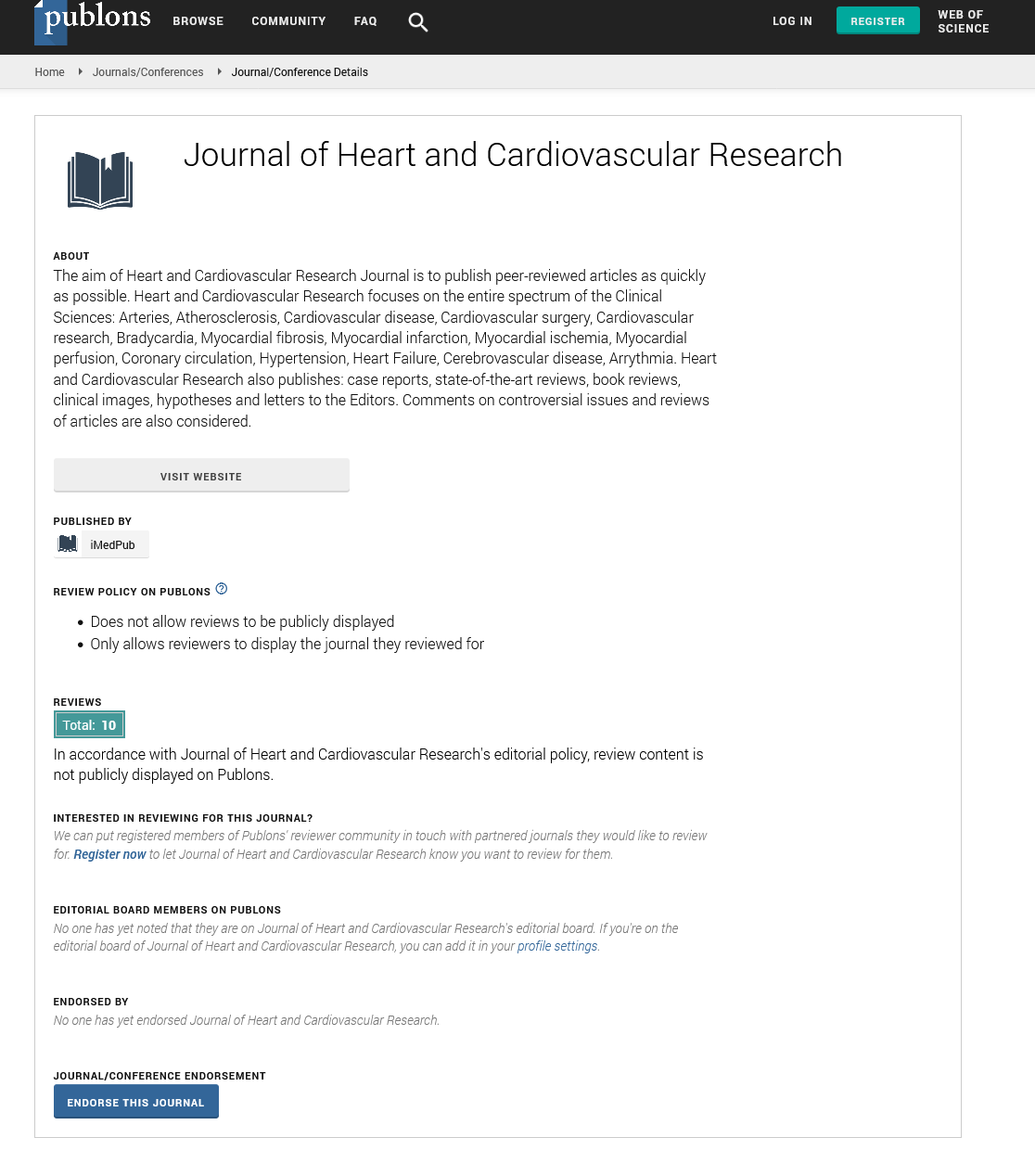ISSN : ISSN: 2576-1455
Journal of Heart and Cardiovascular Research
Abstract
Camel Milk; A Superfood for Diabetes and its Complications
There are various anti-diabetic drugs to treat diabetes but they have several negative effects on the patients’ health. Although the proper treatment of diabetes includes insulin injection continuously to maintain blood glucose level, but nowadays, the researchers following some natural alternative healings for insulin. Camel milk contains insulin like proteins, which does not form coagulum in the acidic condition of stomach, can be absorbed from the intestine and may be an effective alternative for insulin to treat type 1 and 2 and gestational diabetes. Camel milk is believed to be a suitable hypoglycaemic agent in improving long-term glycaemic control in experimental animals and patients with diabetes. The incidence risk of diabetes in people who regularly consume camel milk, is much lower than those who don’t use camel milk. Camel milk may prepare about 60% of the insulin in diabetic patients and reduce blood sugar and required insulin dose about 30–35% in type 1 diabetes patients. Raw camel milk has immune- modulatory effects on beta-cells of the pancreas, increase insulin secretion, reduces required insulin and insulin resistance and improves the glycaemic control in type 1 diabetes patients. Camel milk improves the diabetes complications such as obesity, inflammation, wounds and oxidative stress damages. The anti-oxidative activity of camel milk whey proteins enhances the proliferation of immune cells and accelerates the wound healing process during diabetes. Also, camel milk can prevent liver and kidney failures derived from diabetes mellitus and improving lipid profiles in diabetes patients. Lactoferrin of camel milk has immune- modulatory effects on pancreas beta-cells and reduces required insulin doses in diabetes 1 and 2 patients. Obviously, camel milk effects on regulating of blood glucose are including; effect on insulin receptor function, signalling and glucose transport in the insulin-sensitive tissues, effect on the growth and activity of the pancreatic beta-cells in insulin secretion and negative modulation on the glucagon receptor. In most of the clinical trials, the favourable effects of raw camel milk on diabetes mellitus observed by the recommended dose 500 mL/day for 3 months which also improve risk factors such as liver and kidney failures and cardiovascular challenge derived from diabetes mellitus. It appears that more scientific studies are needed to confirm the effectiveness of processed and camel milk powder on diabetes cases.
Author(s): Taherah Mohammadabadi
Abstract | Full-Text | PDF
Share This Article
Google Scholar citation report
Citations : 34
Journal of Heart and Cardiovascular Research received 34 citations as per Google Scholar report
Journal of Heart and Cardiovascular Research peer review process verified at publons
Abstracted/Indexed in
- Google Scholar
- Sherpa Romeo
- China National Knowledge Infrastructure (CNKI)
- Publons
Open Access Journals
- Aquaculture & Veterinary Science
- Chemistry & Chemical Sciences
- Clinical Sciences
- Engineering
- General Science
- Genetics & Molecular Biology
- Health Care & Nursing
- Immunology & Microbiology
- Materials Science
- Mathematics & Physics
- Medical Sciences
- Neurology & Psychiatry
- Oncology & Cancer Science
- Pharmaceutical Sciences
